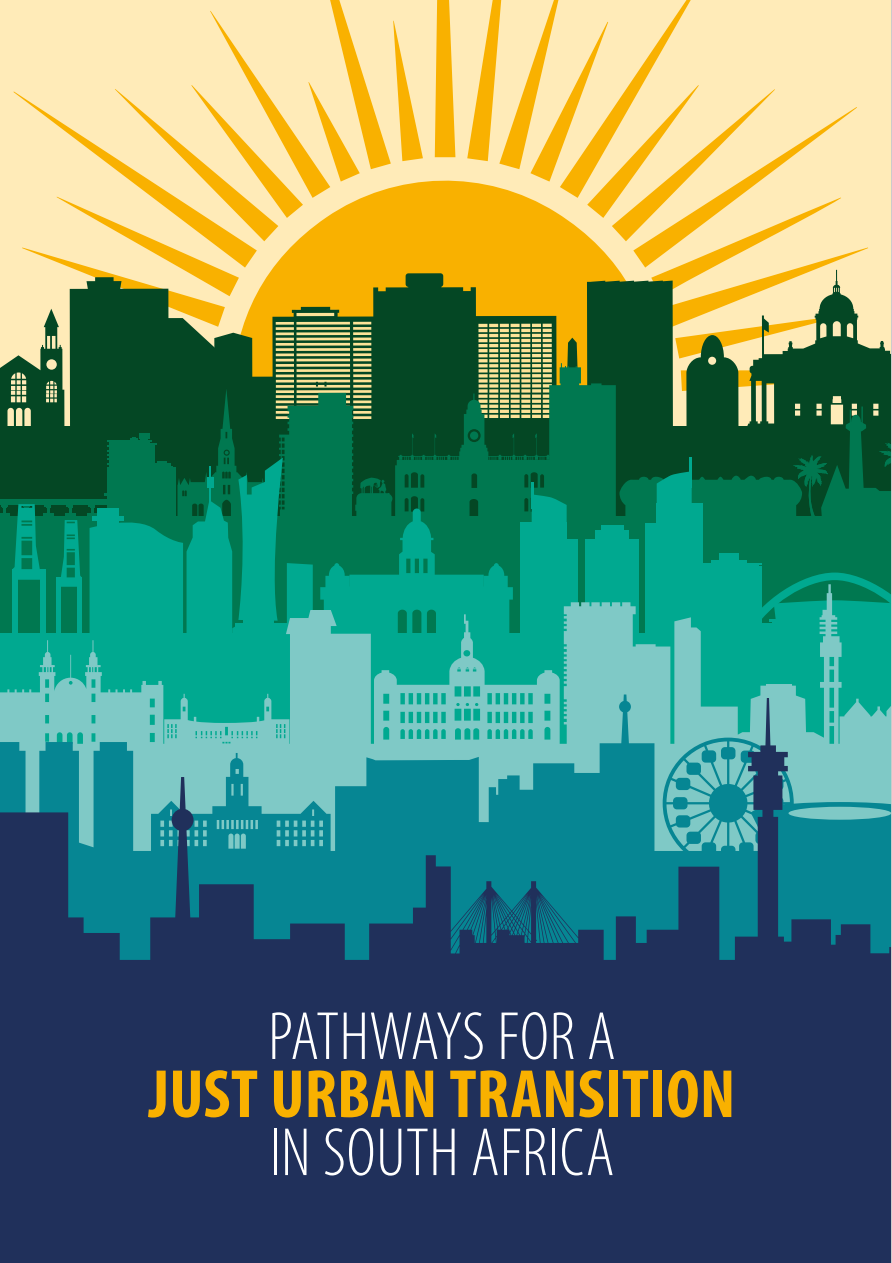Pathways for a Just Urban Transition in South Africa

Cities Support Programme, the Presidential Climate Commission and the World Bank jointly requested the African Centre for Cities to compile this Just Urban Transition (JUT) discussion paper for South Africa. The report aims to update the concept of JUT, propose actionable recommendations, and support the Presidential Climate Commission's consultation processes. The focus is on South Africa's eight metropolitan municipalities (metros), which are critical for leading climate action and urban transformation.
South Africa’s Just Transition Framework emphasises the need for social justice in climate transitions, recognising the risks and opportunities in decarbonising the economy. Metros are seen as central to achieving climate goals, potentially contributing to a 40% reduction in national emissions by 2030.
The report argues that successful urban transitions require linking climate action with socio-economic improvements, such as job creation, better service provision, and reduced inequality. Integrating JUT into Metro budgets and operations is essential, and national efforts should guide financial support and accountability.
To implement JUT, metros can leverage multi-level governance through three key approaches: regulatory, fiscal, and governance.
- Regulatory: Metros can use by-laws, zoning, and building codes to promote low-carbon materials, circular economies, and ecological protection. They can also ration services to encourage on-site energy, sanitation, and waste management.
- Fiscal: Public funding can be aligned with private investment to support initiatives like renewable energy cooperatives in poor communities. This helps reform the energy economy, reduce inflationary pressures, and tackle issues like shack fires and indoor air pollution.
- Governance: Advocacy and leadership are essential to promote a JUT and build partnerships with various stakeholders. Leaders must clearly communicate the vision and rationale for a JUT to attract investment and service delivery partnerships. These efforts will require new skills and trust-building among governments, businesses, NGOs, and communities.
Abstract based on original source.


Comments